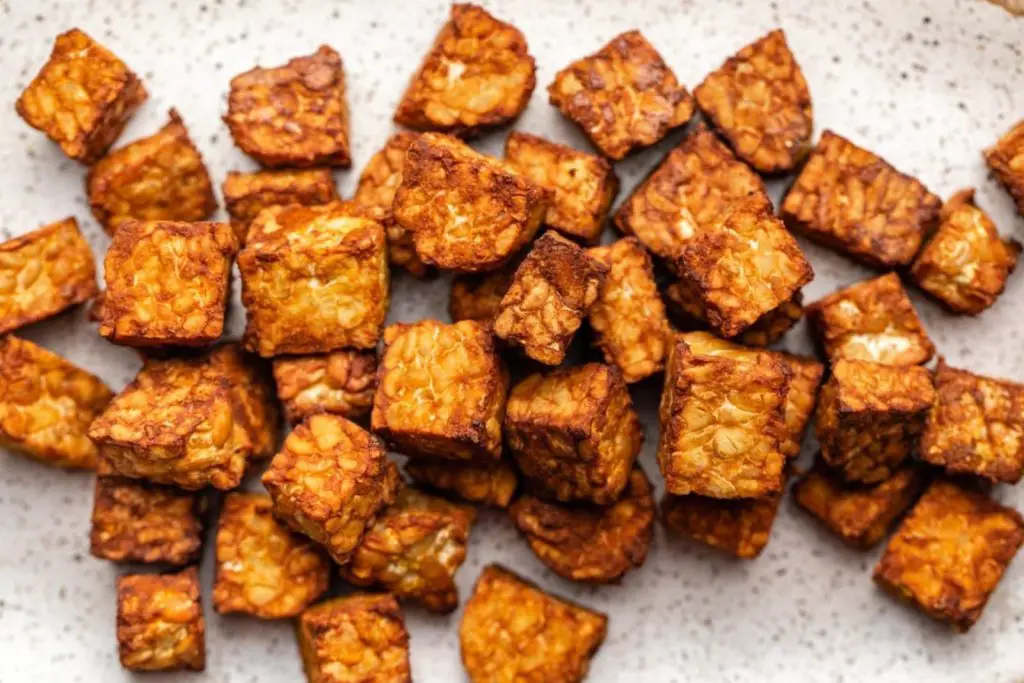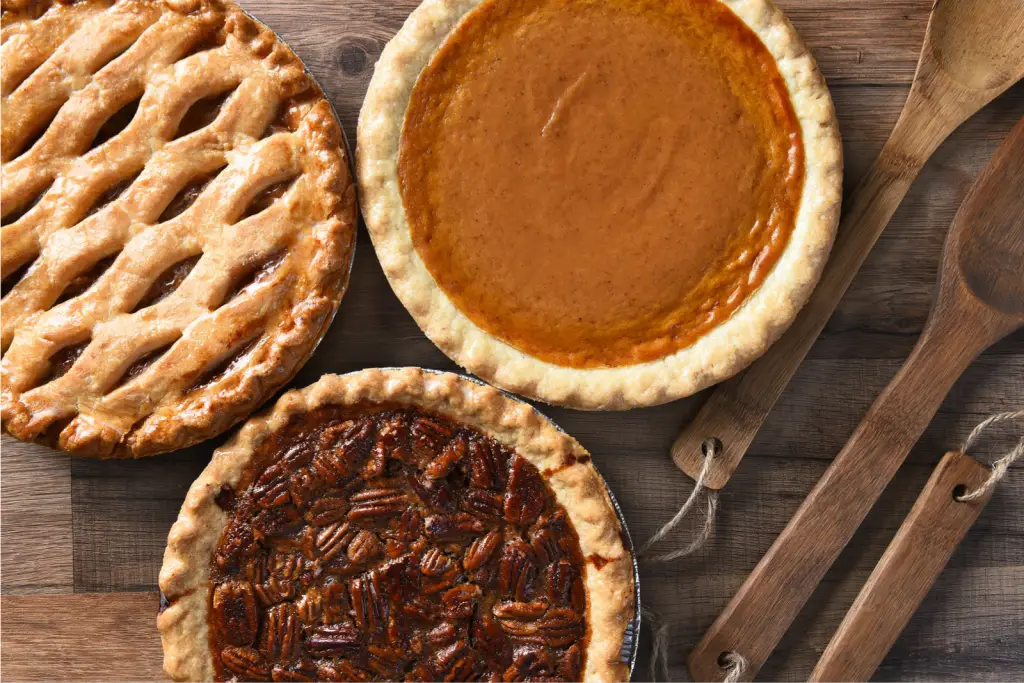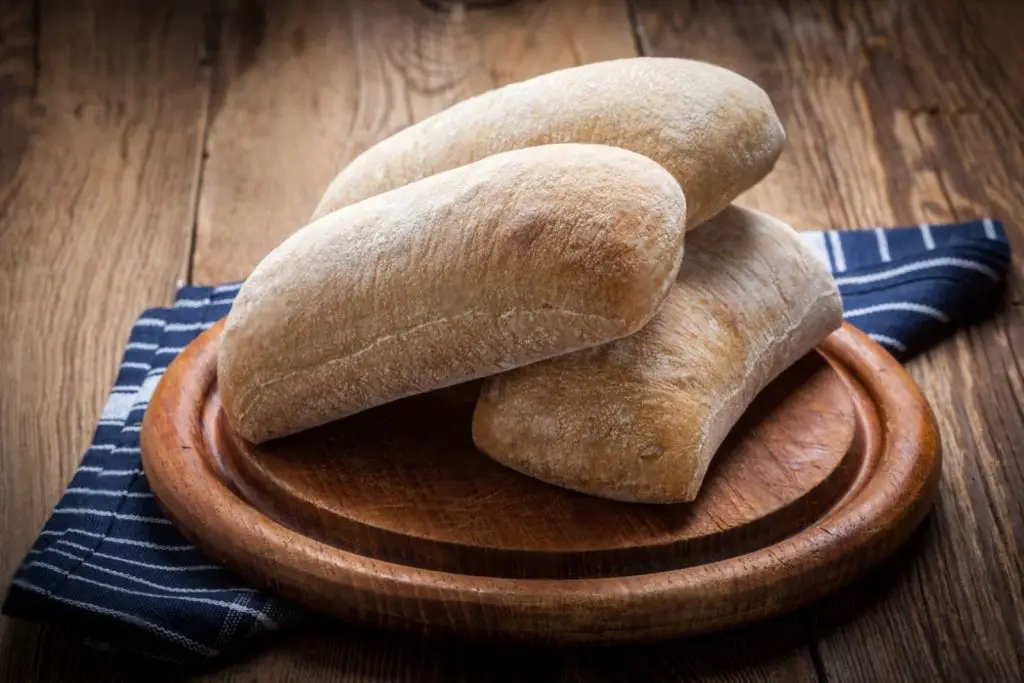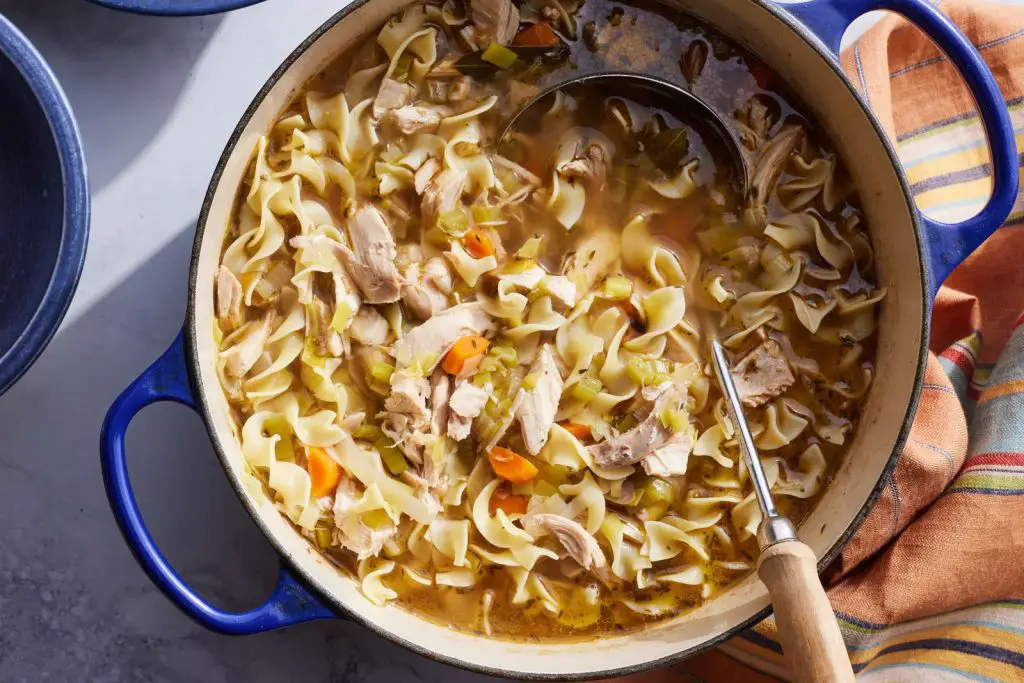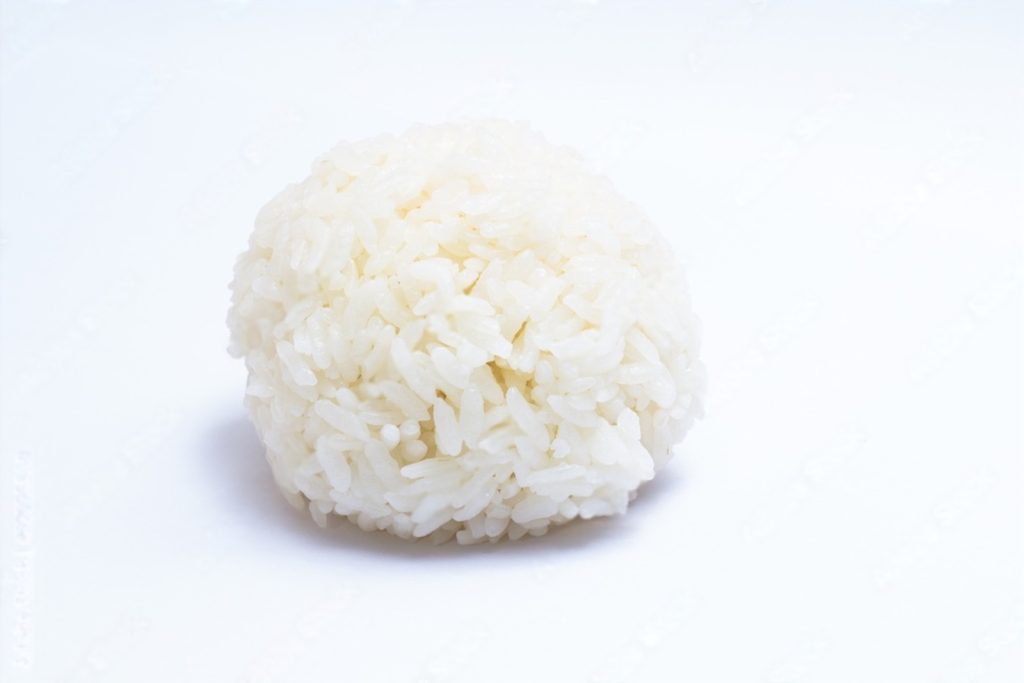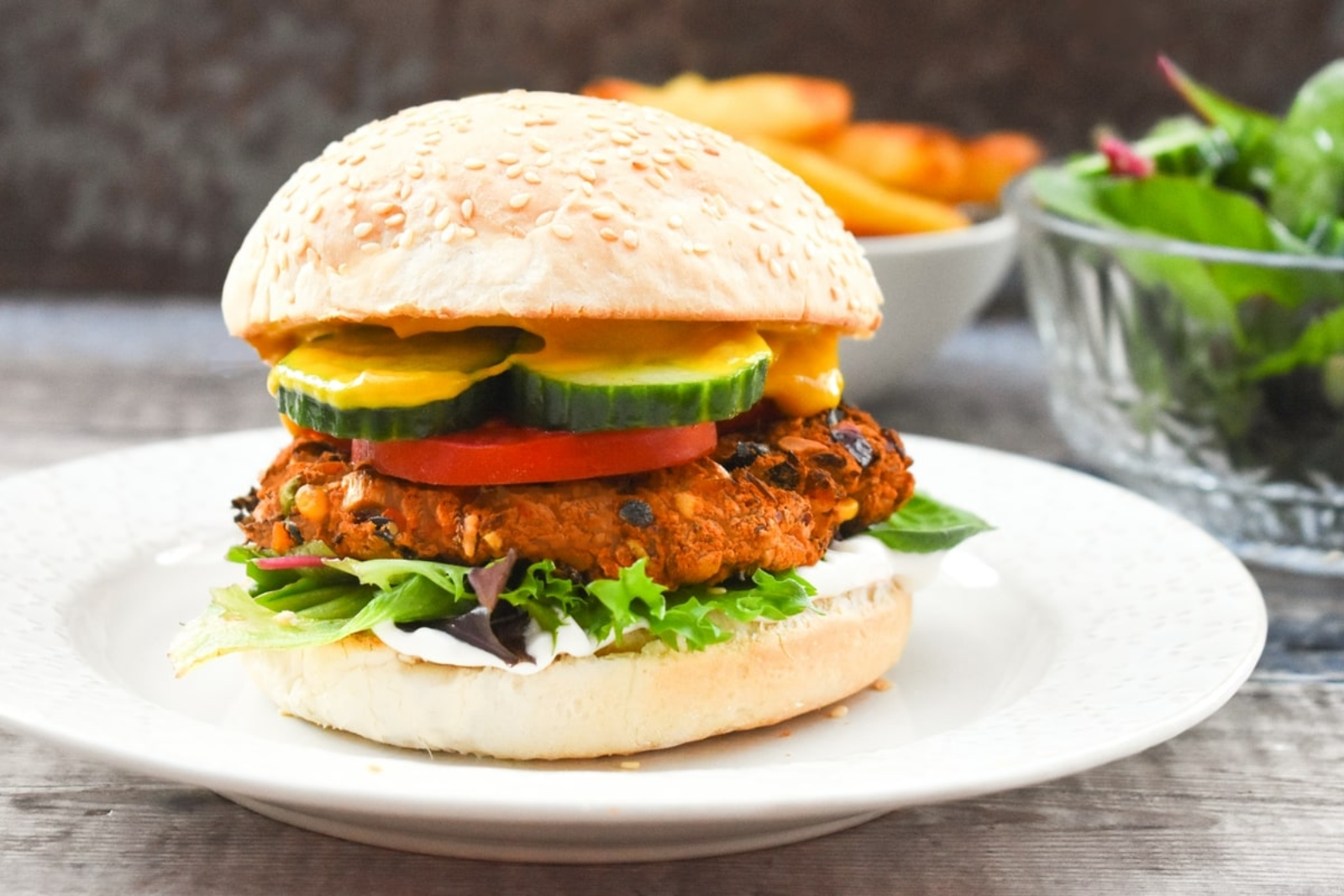
Veggie burgers have become increasingly popular among those looking for a meatless alternative or simply wanting to incorporate more plant-based options into their diet. These burgers are typically made from a combination of vegetables, legumes, grains, and spices, offering a delicious and nutritious alternative to traditional meat patties. If you have a surplus of veggie burgers or want to plan ahead for future meals, freezing them is a great way to preserve their taste and texture. By following a few simple steps, you can ensure that your veggie burgers remain flavorful and satisfying even after being frozen. In this article, we will provide a comprehensive guide on how to freeze veggie burgers to help you enjoy them at your convenience.
Here’s a step-by-step guide on freezing veggie burgers:
Step 1: Prepare the veggie burgers
Once you have chosen your preferred veggie burgers, the next step is to prepare them for freezing. The preparation process may vary depending on whether you have made the burgers yourself or purchased them from the store.
If you have made homemade veggie burgers, it’s important to allow them to cool completely before freezing. This step is crucial because if you freeze the burgers while they are still warm, condensation can form inside the packaging, leading to freezer burn and negatively impacting the texture and taste of the burgers. Allowing them to cool ensures that the moisture inside the burgers has a chance to redistribute evenly, maintaining their shape and consistency during freezing.
On the other hand, if you have purchased pre-made veggie burgers from the store, it’s essential to follow any instructions provided on the packaging regarding thawing or cooking. Some store-bought veggie burgers may require cooking before freezing, while others may be suitable for freezing directly. By following the manufacturer’s instructions, you can ensure that the burgers retain their optimal quality.
Additionally, if you are freezing leftover cooked veggie burgers, it’s important to cool them to room temperature before freezing. Placing hot or warm burgers directly in the freezer can cause condensation and lead to ice crystals, affecting the texture of the burgers.
Step 2: Wrap the veggie burgers
After preparing your veggie burgers for freezing, the next step is to wrap them individually. Wrapping each burger with either plastic wrap or aluminum foil serves two important purposes: preventing freezer burn and allowing for easy portioning.
Freezer burn is a common issue that can occur when food is not properly protected in the freezer. It happens when moisture in the food evaporates, forms ice crystals, and then sublimates back into the air. This can lead to changes in texture, flavor, and overall quality. By wrapping each veggie burger individually, you create a barrier that helps to prevent moisture loss and protect the burgers from freezer burn.
Plastic wrap and aluminum foil are both effective options for wrapping veggie burgers. Plastic wrap provides a tight seal, keeping the burgers well-protected. Aluminum foil, on the other hand, offers a layer of insulation and can help retain moisture. Choose the option that works best for you and the type of burger you are freezing.
Individually wrapping the veggie burgers also allows for convenient portioning. By wrapping them separately, you can easily take out as many burgers as you need at a time without having to thaw the entire batch. This is especially useful when you want to enjoy a quick and hassle-free meal. Simply remove the desired number of wrapped burgers from the freezer and leave the rest undisturbed.
Additionally, individual wrapping helps prevent the burgers from sticking together. When frozen together without any separation, the burgers can become difficult to separate, and you may end up thawing more than you actually need. Wrapping them individually ensures that they remain separate and easily accessible.
Step 3: Place the wrapped burgers in a container
Once you have wrapped your veggie burgers individually, the next step is to properly store them in a freezer-safe container or a resealable plastic bag. This step is crucial for maintaining the quality and preventing any potential issues during freezing.
Placing the wrapped veggie burgers in a container or bag provides an extra layer of protection. It helps to further shield the burgers from exposure to air and potential contaminants in the freezer. Moreover, it keeps them organized and prevents them from shifting or getting crushed by other items in the freezer.
When selecting a container or bag, ensure that it is specifically designed for freezer use. Freezer-safe containers are typically made of durable materials that can withstand low temperatures without becoming brittle or cracking. Resealable plastic bags made for freezing are often thicker and more resistant to punctures or tears.
Regardless of whether you choose a container or bag, it’s important to remove as much air as possible before sealing it. Excess air can contribute to freezer burn and negatively affect the texture and taste of the burgers. To remove air from a plastic bag, gently press on the bag while sealing it to create a vacuum-like effect. For a container, choose one that fits the burgers snugly to minimize air circulation.
By minimizing the amount of air surrounding the wrapped veggie burgers, you reduce the risk of freezer burn and help maintain their quality during storage. Properly sealed containers or bags also prevent any unwanted odors or flavors from being absorbed by the burgers, preserving their original taste.
Step 4: Label and date the package
Labeling and dating the package containing your frozen veggie burgers is an important step to help you keep track of their freshness and ensure proper rotation. By using a permanent marker to mark the container or bag with the date of freezing, you create a clear reference point for when the burgers were stored in the freezer.
Why is this important? Freezing is a method of preserving food, but it doesn’t mean that the quality of the frozen food will remain the same indefinitely. Over time, even when properly stored, frozen foods may experience changes in flavor, texture, and overall quality. By labeling and dating your frozen veggie burger package, you establish a system to track their freshness and consume them in a timely manner.
By knowing the date of freezing, you can practice first-in, first-out (FIFO) rotation. This means using the oldest burgers first before moving on to the more recently frozen ones. Following FIFO ensures that none of the burgers stay in the freezer for an extended period, reducing the risk of freezer burn or a decline in quality.
Labeling also comes in handy when you have multiple batches or varieties of veggie burgers in the freezer. It allows you to easily identify the specific type of burger you want to consume without having to unwrap and inspect each one.
Additionally, it’s worth noting that frozen foods may not always be visually distinguishable due to the freezing process. By labeling the package, you eliminate any guesswork and avoid confusion when retrieving the desired veggie burgers from the freezer.
Step 5: Freeze the veggie burgers
Once you have properly packaged and labeled your veggie burgers, it’s time to freeze them. Freezing is a critical step in preserving the quality, taste, and texture of the burgers for an extended period. Here’s why it’s important to follow proper freezing techniques:
- Maintain Quality: Freezing helps to slow down the natural deterioration of food by inhibiting the growth of microorganisms. By placing your wrapped veggie burger package in the freezer, you create a cold environment that minimizes bacterial growth and enzymatic reactions, preserving the burgers’ quality.
- Avoid Spills and Distortions: It’s important to place the container or bag on a flat surface in the freezer. This ensures that the burgers remain in their intended shape and that no spills or leaks occur during the freezing process. A flat surface also allows for easier stacking and organization of other freezer items, maximizing storage space.
- Optimal Preservation: To maintain the best possible quality, it’s recommended to store the veggie burgers in the coldest part of your freezer. Typically, the coldest area is towards the back or bottom of the freezer. Placing the burgers in the coldest section helps to maintain a consistent temperature, reducing the risk of temperature fluctuations that can negatively impact the burgers’ texture and taste.
It’s important to note that the ideal freezer temperature for storing most foods, including veggie burgers, is 0°F (-18°C) or below. This temperature inhibits bacterial growth and helps to retain the burgers’ freshness and flavor over a longer period.
How long can I keep veggie burgers in the freezer?
When properly stored, veggie burgers can be kept in the freezer for up to three months. However, for the best quality and taste, it’s recommended to consume them within one to two months. Proper packaging, labeling, and storing in the coldest part of the freezer can help maintain their freshness.
Step 6: Thaw and reheat the burgers
When the time comes to enjoy your frozen veggie burgers, it’s important to thaw them properly to ensure they heat evenly and retain their desired texture. Here’s why thawing and reheating the burgers correctly is essential:
- Thawing for Even Heating: The first step is to remove the frozen veggie burgers from the freezer and allow them to thaw. Thawing in the refrigerator is the recommended method as it promotes a gradual thawing process. The cold temperature of the refrigerator prevents any rapid bacterial growth and helps maintain the burgers’ quality. Thawing in the refrigerator typically takes a few hours or overnight, depending on the size and thickness of the burgers.
- Texture Preservation: Thawing the veggie burgers in the refrigerator helps them retain their desired texture. Slow thawing prevents excessive moisture loss and maintains the integrity of the ingredients, resulting in burgers that are tender and flavorful.
- Reheating Methods: Once the veggie burgers are thawed, you have various options for reheating them according to your preference. Grilling, baking, or pan-frying are common methods. Grilling gives the burgers a smoky and charred flavor, while baking is a convenient option that requires less hands-on attention. Pan-frying allows for a crisp exterior and a moist interior. Choose the method that aligns with your taste and the equipment available to you.
It’s important to note that the internal temperature of the reheated veggie burgers should reach 165°F (74°C) to ensure they are thoroughly cooked and safe to eat. Use a food thermometer to check the temperature in the thickest part of the burger.
Other related questions
Can I refreeze veggie burgers?
No, it is generally not recommended to refreeze veggie burgers once they have been thawed. Refreezing can lead to a loss in quality, texture, and flavor of the burgers. It is best to thaw only the amount of veggie burgers you plan to consume and store the remaining ones in the freezer until ready to use.
How do I know if the veggie burgers have gone bad after being frozen?
To determine if frozen veggie burgers have gone bad, look for signs of spoilage such as off odors, unusual texture, or discoloration. If the burgers exhibit a strong, unpleasant smell or appear mushy, slimy, or discolored, they should be discarded. Additionally, freezer burn, characterized by dry, discolored patches on the surface of the burgers, can indicate a loss in quality but does not render them unsafe to eat.
Can I freeze veggie burger patties without cooking them first?
Yes, you can freeze uncooked veggie burger patties. Form the patties as you normally would, then wrap them individually and freeze following the instructions in the article. When you’re ready to cook them, simply thaw the patties in the refrigerator and proceed with your desired cooking method.
Can I freeze store-bought frozen veggie burgers directly without additional wrapping?
Most store-bought frozen veggie burgers come prepackaged with suitable wrapping to protect them during freezing. However, if you want to further extend their shelf life or portion them individually, you can transfer them to airtight freezer-safe containers or resealable plastic bags before freezing.
Can I freeze veggie burgers with toppings and condiments?
It is generally not recommended to freeze veggie burgers with toppings and condiments. Toppings such as lettuce, tomatoes, or sauces can become soggy and lose their quality when frozen. It’s best to freeze the plain veggie burgers and add fresh toppings and condiments when reheating and serving.
Can I freeze leftover cooked veggie burgers?
Yes, you can freeze leftover cooked veggie burgers. Allow them to cool completely, wrap them individually, and follow the freezing instructions mentioned in the article. Freezing leftovers is a great way to minimize food waste and have a quick meal option ready to go.
Can I freeze veggie burger buns along with the patties?
While you technically can freeze veggie burger buns, it’s generally recommended to freeze them separately from the patties. Freezing buns can lead to changes in texture and moisture, affecting their quality. It’s best to freeze the veggie burger patties individually and store the buns separately in airtight packaging.
Can I season veggie burgers before freezing them?
Yes, you can season veggie burgers before freezing them. Seasoning the burgers before freezing allows the flavors to develop and enhances their taste. However, be mindful of using excessive salt as it can draw out moisture and affect the texture. It’s best to season them to your preference while keeping in mind the overall balance of flavors.
Can I freeze veggie burger toppings separately?
Yes, you can freeze veggie burger toppings separately if desired. Some toppings, like sliced onions, pickles, or cheese, can be frozen in separate airtight containers or freezer-safe bags. This allows you to portion them individually and easily add them to your veggie burgers when serving without affecting their texture or taste.
Can I freeze raw veggie burger ingredients for future use?
Yes, you can freeze raw veggie burger ingredients separately to have them ready for future burger-making. For example, you can freeze prepped and chopped vegetables, cooked grains, or mashed legumes in portioned containers or freezer bags. Freezing the ingredients separately allows for easier meal prep when assembling veggie burgers later on.

